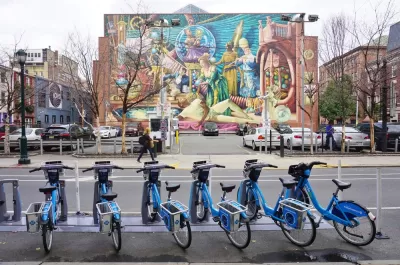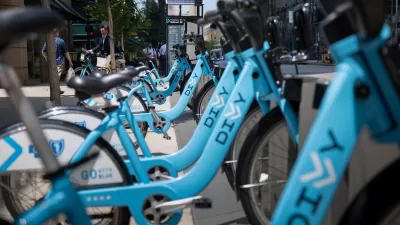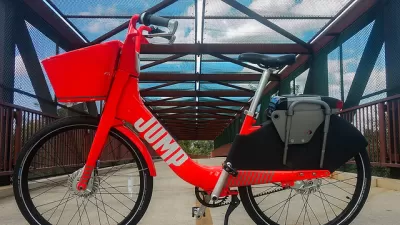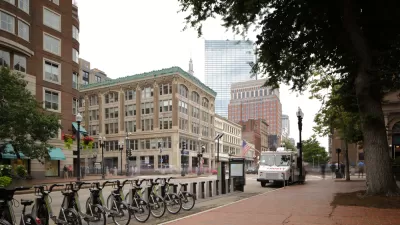As bikeshare operations have evolved and spread they've begun to differentiate, not just between docked and dockless, but also in terms of public or private ownership and electric and non-electric offerings.

Bikeshare operations have always varied from city to city, but as this mode of transit has become more popular, it's also become more diverse. "It’s easy to forget how young and unformed this transportation mode is: The first modern municipal bikeshare, Paris’s Velib, launched in 2007, and the first programs in the U.S. appeared in 2010," Alex Baca reports for CityLab.
Today there are a number of different types of bike share. One thing driving this differentiation is the variety of owners and funders of the services. "For example, D.C.’s Capital Bikeshare is publicly funded and publicly owned, but privately operated by Motivate, a firm that also operates Divvy in Chicago and Citibike in New York City. Divvy, like CaBi, is publicly funded, whereas Citibike is publicly owned but funded through sponsorships from Citibank and Mastercard," Baca writes.
The advent of dockless bikeshare changed the types of ownership again, in part because of the difference in equipment costs. "What users might not realize that the bikes themselves are also vastly cheaper, compared to traditional equipment. Each dockless bike costs its company about $200; traditional bikeshare bikes—the PBSC tanks, SoBi’s pre-Jump “smart bikes,” B-Cycle’s cruisers—are all north of $2,000," Baca writes.
If cities want to get the most out of this changing mobility service, they need to be careful how they craft their regulations, Baca argues. "Cities should fastidiously demand companies share their ridership data, and should hold operators to key performance indicators to keep bikes balanced and accessible." This would apply to e-bike, scooter and e-scooters as well.
FULL STORY: What Cities Need to Understand About Bikeshare Now

Alabama: Trump Terminates Settlements for Black Communities Harmed By Raw Sewage
Trump deemed the landmark civil rights agreement “illegal DEI and environmental justice policy.”

Planetizen Federal Action Tracker
A weekly monitor of how Trump’s orders and actions are impacting planners and planning in America.

The 120 Year Old Tiny Home Villages That Sheltered San Francisco’s Earthquake Refugees
More than a century ago, San Francisco mobilized to house thousands of residents displaced by the 1906 earthquake. Could their strategy offer a model for the present?

Ken Jennings Launches Transit Web Series
The Jeopardy champ wants you to ride public transit.

BLM To Rescind Public Lands Rule
The change will downgrade conservation, once again putting federal land at risk for mining and other extractive uses.

Indy Neighborhood Group Builds Temporary Multi-Use Path
Community members, aided in part by funding from the city, repurposed a vehicle lane to create a protected bike and pedestrian path for the summer season.
Urban Design for Planners 1: Software Tools
This six-course series explores essential urban design concepts using open source software and equips planners with the tools they need to participate fully in the urban design process.
Planning for Universal Design
Learn the tools for implementing Universal Design in planning regulations.
Clanton & Associates, Inc.
Jessamine County Fiscal Court
Institute for Housing and Urban Development Studies (IHS)
City of Grandview
Harvard GSD Executive Education
Toledo-Lucas County Plan Commissions
Salt Lake City
NYU Wagner Graduate School of Public Service





























